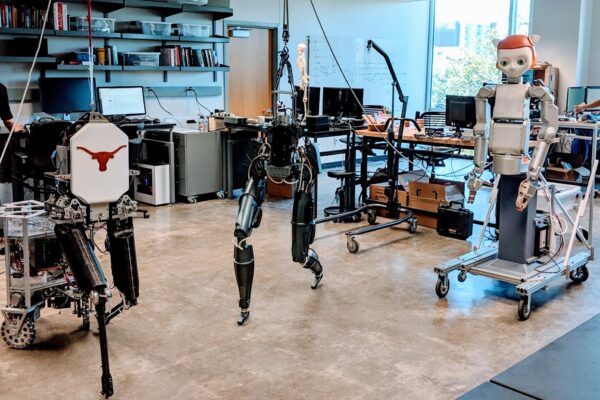AUSTIN, Texas — Ethics will be at the forefront of robotics education thanks to a new University of Texas at Austin program that will train tomorrow’s technologists to understand the positive — and potentially negative — implications of their creations.
Today, much robotic technology is developed without considering its potentially harmful effects on society, including how these technologies can infringe on privacy or further economic inequity. The new UT Austin program will fill an important educational gap by prioritizing these issues in its curriculum.
“In the next 10 years, we are going to live more closely alongside robots, and we want to be sure that those robots are fair, inclusive and free from bias,” said Junfeng Jiao, associate professor in the School of Architecture and the program lead. “And because the robots we create are reflections of ourselves, it is imperative that technologists receive an excellent ethics education. We want our students to work directly with companies to create practices and technologies that are equitable and fair.”
Called CREATE (Convergent, Responsible, and Ethical AI Training Experience for Roboticists), it will offer graduate coursework and professional development in responsible design and implementation.
CREATE is a collaboration among Texas Robotics, industry partners and the UT grand challenge research initiative Good Systems, which seeks to design AI technologies that benefit society. The program has been recently awarded a $3 million grant from the National Science Foundation through its Research Traineeship Program, which will support 32 doctoral students to receive coursework, mentorship, professional development, internships, and research and public service opportunities.
Students will focus specifically on how to ethically design, develop and deploy service robots, which can make deliveries, work in factories and clean homes. They will consider factors such as how to design delivery service robots so they are more inclusive and can reach all people and how to ensure home service robots protect occupants’ privacy. Several notable robotics companies have also said they will offer students internships, including Sony AI, Bosch, Amazon, SparkCognition and Apptronik.
Researchers involved in the program cross many disciplines at UT, including computer science, architecture, engineering, information, and public affairs. Faculty members from these units will teach courses as part of the curriculum, and two faculty members will mentor each trainee during the five-year program. Additionally, each trainee will receive help with career development, grant writing, and exposure to local startup companies.
More than half of the program’s trainees will be chosen from underrepresented groups in STEM education, including women and racial minorities, to help bring much-needed diversity to the field of robotics. The coursework component, which includes five classes in ethical robotics, will be institutionalized as a graduate portfolio program and will be available to all STEM graduate students at UT Austin.
“This program will enable us to educate well-rounded roboticists who are not only grounded in the technical details of designing and building autonomous robots but also are equipped to fully consider the societal implications of their work,” said Peter Stone, director of Texas Robotics and a professor of computer science. “That is a missing part in robotics education in the U.S. and the world. We believe this is a game changer for the future of robotics.”




